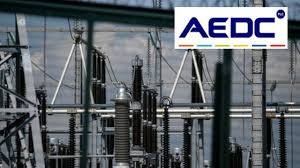The Abuja Electricity Distribution Company (AEDC) has initiated a significant refund program, returning N241.45 million in electricity credit to 9,823 customers across its operational areas, encompassing the Federal Capital Territory, Kogi, Niger, and Nasarawa states. This comprehensive reimbursement, covering the period from June 2024 to January 2025, addresses billing irregularities and regulatory infractions, particularly those related to the Meter Asset Provider (MAP) scheme. The refunds, implemented as energy credits directly applied to customer accounts, follow directives issued by the Nigerian Electricity Regulatory Commission (NERC), the governing body overseeing the electricity sector. This move underscores the regulatory pressure on distribution companies to adhere to consumer protection guidelines and ensure fair billing practices within the MAP framework. The AEDC’s proactive publication of the list of beneficiaries on its official website reinforces its commitment to transparency and aims to rebuild customer trust, a crucial step in addressing persistent public concerns about billing accuracy and accountability within the power sector.
The impetus for these refunds stems from the NERC’s regulatory oversight and enforcement of the MAP scheme, designed to accelerate meter deployment and eliminate estimated billing. Under this scheme, third-party investors provide and maintain meters, while customers pay monthly metering service charges. However, the implementation of the MAP program has been plagued by challenges, including delays and inconsistencies in refunds owed to customers who made upfront payments for meters. The NERC mandates that DisCos, including AEDC, reimburse these upfront payments through energy credits, with the reimbursement schedule subject to regulatory approval based on the DisCo’s financial standing. This regulatory framework aims to protect consumers from undue financial burdens and ensure the smooth rollout of the metering program, a critical component of improving service delivery and customer satisfaction in the power sector.
The AEDC’s refund program targets two distinct categories of customers: those affected by MAP-related billing discrepancies and those experiencing insufficient electricity supply despite being in Band A, a category guaranteed 20 hours of daily supply. For MAP customers, refunds reflect the overcharges resulting from billing irregularities and delayed meter deployments. The published list details the names, refund amounts, and other relevant information for each beneficiary, enabling customers to verify their refund status and fostering transparency. For Band A customers, the compensation addresses the shortfall in guaranteed service hours, with refunds provided in the form of energy units for prepaid meters or billing credits for postpaid meters. This dual approach demonstrates the AEDC’s commitment to rectifying both metering-related issues and broader service delivery shortcomings.
The distribution of refunds across the specified period highlights the fluctuating nature of billing irregularities and service delivery challenges. While some months saw a relatively small number of beneficiaries and refund amounts, others witnessed a surge in both. For example, November 2024 recorded the highest refund value of N215.58 million disbursed to 6,179 customers, likely reflecting accumulated discrepancies or a specific incident requiring significant redress. The variation in monthly refund figures suggests ongoing efforts to identify and rectify billing issues, though the root causes of these inconsistencies warrant further investigation and systemic solutions. The AEDC’s provision of contact channels, including WhatsApp and dedicated customer care numbers, facilitates customer inquiries and ensures accessibility for those seeking clarification or assistance regarding their refunds.
The AEDC’s refund initiative represents a significant step towards enhancing accountability and transparency within Nigeria’s power sector. This sector has long been plagued by consumer dissatisfaction stemming from estimated billing, metering gaps, and inconsistent service delivery. The MAP scheme, while intended to address these issues, has faced its own set of implementation challenges, necessitating regulatory intervention to ensure consumer protection. By proactively addressing refund obligations and publicly disclosing beneficiary details, the AEDC is demonstrating a commitment to regulatory compliance and rebuilding consumer trust. However, sustained efforts are crucial to prevent future billing irregularities and ensure the consistent delivery of reliable electricity services, ultimately contributing to a more robust and customer-centric power sector.
Beyond the immediate financial implications for affected customers, this refund program serves a broader purpose: fostering greater accountability within the electricity distribution landscape. The public disclosure of refund details not only empowers customers to verify their compensation but also holds the DisCo accountable for its billing practices. This transparency serves as a deterrent against future irregularities and encourages greater diligence in metering and billing processes. The NERC’s ongoing oversight and enforcement actions, coupled with consumer advocacy and pressure, are crucial for driving systemic improvements and ensuring that the power sector operates in the best interests of consumers. The AEDC’s response to these pressures, exemplified by the comprehensive refund program, signals a positive shift towards greater transparency and accountability, though continued efforts are essential for achieving long-term improvements and restoring public confidence in the power sector.


